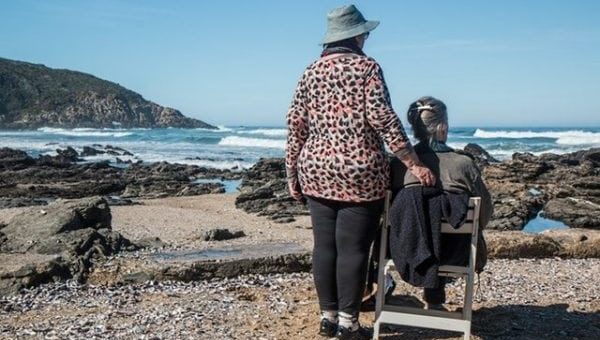 Psychologist Susan Pinker tells us that the key to living a long life may not be eating well and getting exercise. Her research, and that of Julianne Holt-Lunstad, demonstrates that an emphasis on close personal relationships and face-to-face interactions is actually the top predictor of longevity.
Psychologist Susan Pinker tells us that the key to living a long life may not be eating well and getting exercise. Her research, and that of Julianne Holt-Lunstad, demonstrates that an emphasis on close personal relationships and face-to-face interactions is actually the top predictor of longevity.
In other words, if we have friends and family members who are there for us, and if we regularly interact with people socially, even if just superficially, we can expect to live longer than those who take care of their physical health yet live in relative isolation.
Much of Pinker’s research revolved around people living in a village on the Italian island of Sardinia. Per capita, Villagrande had 10 times more centenarians that North America and six times as many as the Italian mainland. Inhabitants did not necessarily live what many consider a healthy lifestyle, but they had very strong family and social ties.
Are there other benefits to social interaction, however?
Though Pinker’s work focused on longevity, other research examines the link between our relationships with others and our level of happiness. Sociologist Christine Carter tells us, “The upshot of 50 years of happiness research is that the quantity and quality of a person’s social connections … is so closely related to well-being and personal happiness the two can practically be equated.”
Yet we live in a world of social isolation. In fact, Mother Teresa said, “The greatest disease in the West today is not TB or leprosy; it is being unwanted, unloved and uncared for.”
The truth of this struck home for me when I was living in Africa. Being Canadian, I was taken aback by the fact that people who didn’t even know me said hello as I walked down the busy streets of Kinshasa, a city of nearly five million inhabitants.
I asked a group of African coworkers why they would do this. They found my question curious and said, “They just want to say hello and make you feel welcome. Don’t people do that in Canada?”
I replied, “If someone did that in Toronto, Montreal or Vancouver, we would think they were either crazy or that they wanted to take something from us. People can live for years in the same apartment building or neighbourhood and not even know the names of the people living around them.”
My friends found this both strange and sad.
Indeed, when settling back into life in Canada, I consciously made a choice to live in Prince George, a community where I found it easy to establish quality relations and where being friendly is part of the established culture.
Beyond choosing to live in similar communities, however, what can we do to improve our social interactions?
Scholars tell us of the importance of valuing and being grateful for the people in our lives.
I’m very fortunate to have a career that requires positive relationships with others in order to be effective. This, however, is not a characteristic that’s unique to teaching. Treating others with kindness and respect makes us more competent, regardless of what we do for a living.
Pinker and others also point out the advantage of simply getting out of our homes and interacting with others, be it playing a sport, becoming part of an organization, volunteering in the community, or anything else we find enjoyable and meaningful.
Humans have never done well living in isolation. Our social connections were key to our survival when we lived as hunter-gatherers, so is it any wonder that this same sort of association is key to living long and happy lives today?
Our neighbours need to hear our cheerful “Hello” as desperately as we need to say it. We’re each a gift to one another and as we embrace this truth in gratitude, we will always find that our joy increases.
Troy Media columnist Gerry Chidiac is an award-winning high school teacher specializing in languages, genocide studies and work with at-risk students.
The views, opinions and positions expressed by columnists and contributors are the author’s alone. They do not inherently or expressly reflect the views, opinions and/or positions of our publication.

